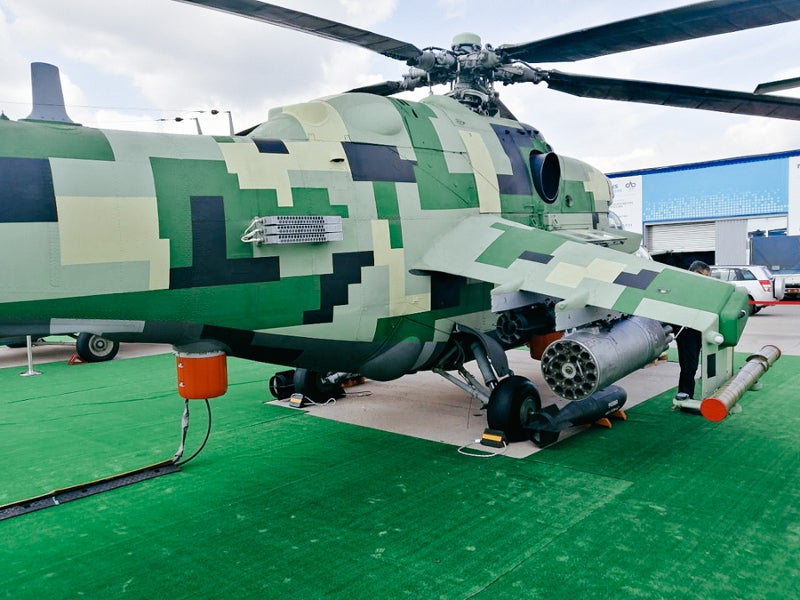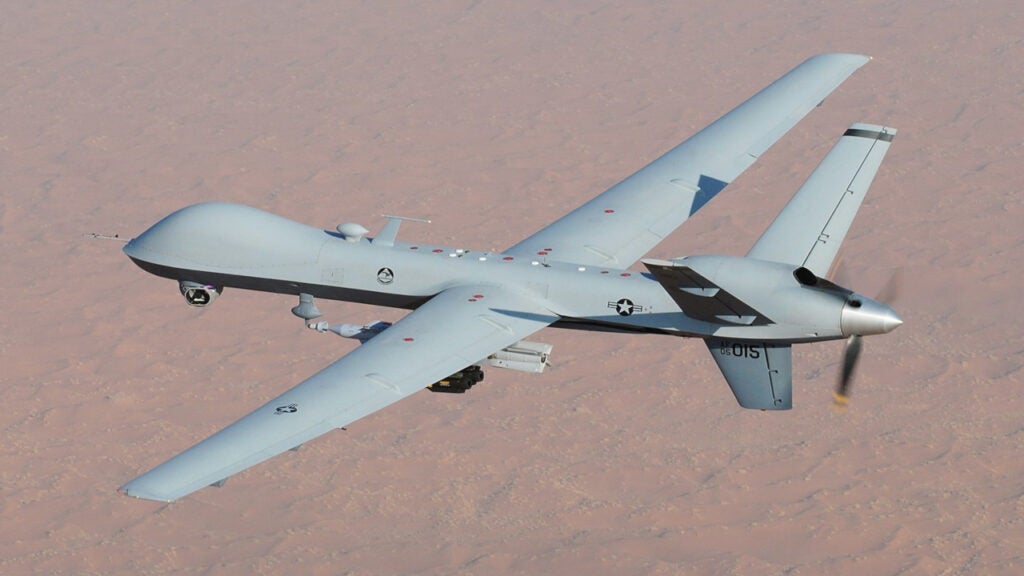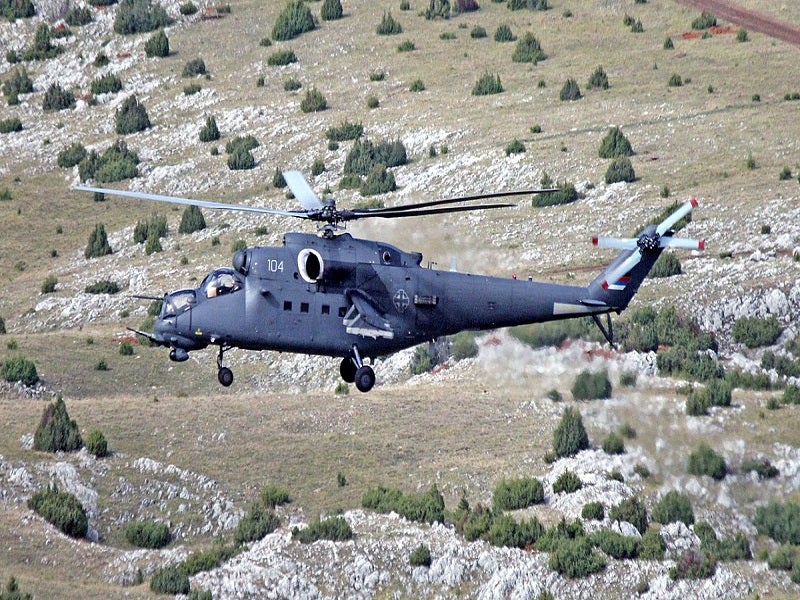
Mi-24P-1M is a modernised version of the Mi-24P (Hind-F) military transport and combat helicopter, which has been operational with the Russian Armed Forces since 1976.
The new version offers superior firepower and improved survivability in the modern battlefield scenarios. It was unveiled at the MAKS 2019 international air show held in Zhukovsky in August 2019.
Russian Helicopters, a rotorcraft designer and manufacturer, is the developer of the Mi-24P-1M variant, while avionics maker Concern Radioelectronic Technologies (KRET) produced avionics and navigation for the helicopter.
Mission capabilities
Mi-24P-1M helicopter is designed to engage and destroy enemy targets such as armoured vehicles and fortifications as well as low-flying aircraft, while providing fire support for the ground forces.
The helicopter can be configured to transport personnel armed with weapons or up to three wounded combatants from the battlefield. It can also transport cargo either on the external hardpoints or inside the cabin.
The Russian Ministry of Defence is expected to conduct flight tests of the modern Mi-24P-1M helicopter between 2019 and 2020.
Mi-24P-1M design and features
Mi-24P-1M combat and transport helicopter is manned by two crew members in tandem configuration. It features a five-blade main rotor and a three-blade tail rotor.
The helicopter’s cargo compartment has a length of 2.5m, a width of 1.45m, and a height of 1.2m. Its fixed tri-cycle landing gear supports take-off and landing operations on different terrains.
The empty weight is reduced by 430kg by replacing the ageing heavy equipment with the advanced systems, while the maximum take-off weight of the rotorcraft is 11,500kg.
The Mi-24P-1M can carry 1,500kg payload within its cabin and up to 2,400kg of loads on its pylons and gun pods.
Avionics aboard Mi-24P-1M
The upgraded Mi-24P-1M is outfitted with an advanced autopilot and navigation systems, which provide unified aerobatic flight control, while reducing pilot workload. The autopilot also allows the helicopter to take-off and land automatically.
New mission computers, digital flight simulator, new-generation electronics, and secure communications are installed to improve mission performance and combat endurance.
The forward and rear cockpits are installed with large colour liquid crystal displays and head-up displays with wide field of view to increase the pilot safety.
A modern multi-spectral warning and threat analysis system is fitted under the fuselage to counter enemy threats.
The OPS-24N-1L electro-optical sighting system underneath the helicopter’s nose can search, track, and locate targets day and night in difficult weather conditions. It features a high-quality TV camera, thermal imager, and a laser rangefinder.
The modernised helicopter also carries new self-protection equipment and can be optionally equipped with active electronically scanned array (AESA) radar in the forward section of the fuselage below the front cockpit, to locate and track targets.
Weaponry
The Mi-24P-1M combat and transport helicopter can carry a range of modern high-precision air-launched weapons on six external hardpoints.
It is armed with laser-guided guided missiles such as 9M123 Khrizantema, in place of the 9M114 supersonic missiles used by its base variant.
The 9M123 all-weather, anti-tank guided missile offers superior lethality against main battle tanks (MBTs) and low-flying aerial targets.
Other weapons carried by the new version include a 30mm fixed gun, 23mm movable cannon, grenade launchers, and other machine guns.
Engines and performance
The base version is powered by a pair of TV3-117VMA engines, which offer a maximum flight speed of 324km/h and a cruise speed of 280km/h.
The helicopter has a service ceiling of 4,500m, while its maximum operating range is 1,050km.
Mi-24P-1M’s power supply system has been updated to offer improved performance and endurance.



